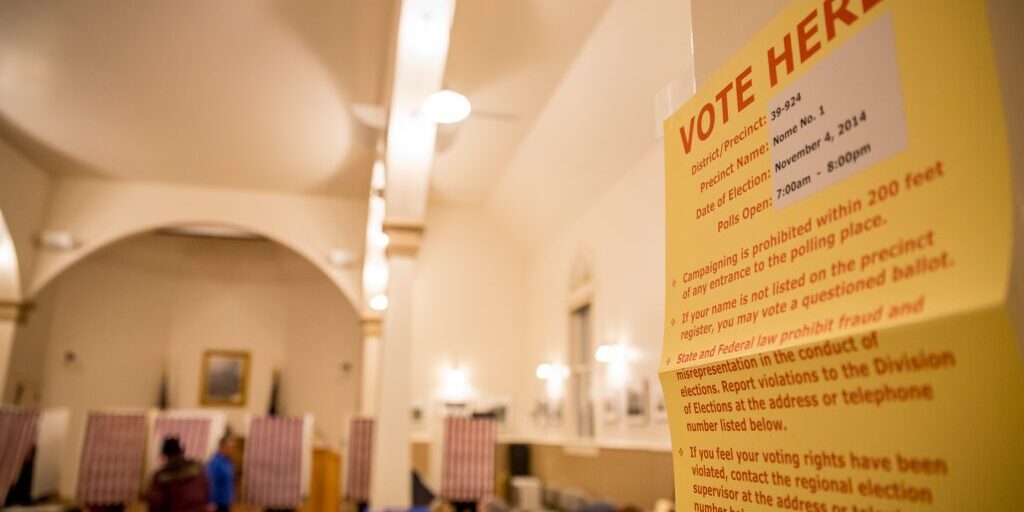Nome’s elected officials are considering a change to elections that they say could encourage more people to run for local office.
If you want to run for a seat on the Nome Common Council you often have to challenge the sitting incumbent. That’s because the city has what’s called a “designated seat system”. The candidates choose a lettered seat and individuals put their names down for that vacancy.
And they’re only running against the other candidates running for that seat. The top vote-getter wins the seat. But Nome’s seats aren’t divided by area either, so every citizen votes for each of the open seats.
But some Councilmembers like Meghan Siġvanna Topkok wondered if that system discourages some people from running for local government.
“There’s this extra calculation that goes into running — when you’re deciding whether to run, who you’re going to run against — you’re doing strategy.”
– Councilmember Topkok
That’s because it often requires candidates to run against a sitting incumbent rather than just throw their hat in the ring.
“If it’s like my year, there were a bunch of people running. So then it’s like, well, do I want to run against this group of people? Do I want to run against this group of people? And I think those are just unnecessary things to think about, in the end doesn’t really matter because we’re not separated by district.”
– Councilmember Topkok
She called the current system “adversarial.” And she backs a change that would lump all the candidates together: the top vote getters would fill the open seats.
And she says it could encourage more diversity among community members who run for office.
Councilmember Jennifer Reader agrees, noting that small town politics can cause additional wrinkles in the local political process.
“I know when I ran, I was not very popular amongst my church members, because I was running against somebody that I went to church with. So it was a little uncomfortable!”
– Councilmember Reader
Now, the council is considering an ordinance that would switch to an “at-large” election process. There would still be the same number of seats, but voters would vote to fill vacancies out of a list of candidates. So, if there are two seats open and 10 candidates, the two people running who receive the most votes win the election.
Most of the council seemed open to the change but during a work session, Councilmember Doug Johnson said he wasn’t convinced.
“To me, it seems like change for the sake of change.”
– Councilmember Doug Johnson
And Johnson advocated that if the system is switched, he wants to keep part of the old rule that says those elected have to receive more than 40% of the votes to win. He said that’s important.
“It just seems to me like you have a greater opportunity to have more people feel like they’re unrepresented.”
The council is currently considering a proposed ordinance to have the “at-large” voting system, but the proposed ordinance does have provisions to make sure the winning candidate still has 40% of the vote. The public will have time to comment on the proposed changes at the council’s April 26th meeting. That’s the soonest the change could come to a vote on the six-seat council.
Nome’s municipal attorney Brooks Chandler says towns across Alaska do it both ways.
“You can have people run for designated seats, or you can just have everybody run in a kind of like a ‘pig pile’ and vote for the number of vacancies.”
– Brooks Chandler, solicitor
And if passed, the new election process would apply not just to the Common Council but also Nome’s School Board and Joint Utility Board.
Image at top: Municipal elections held in Old. St Joseph’s in Nome. (KNOM).




